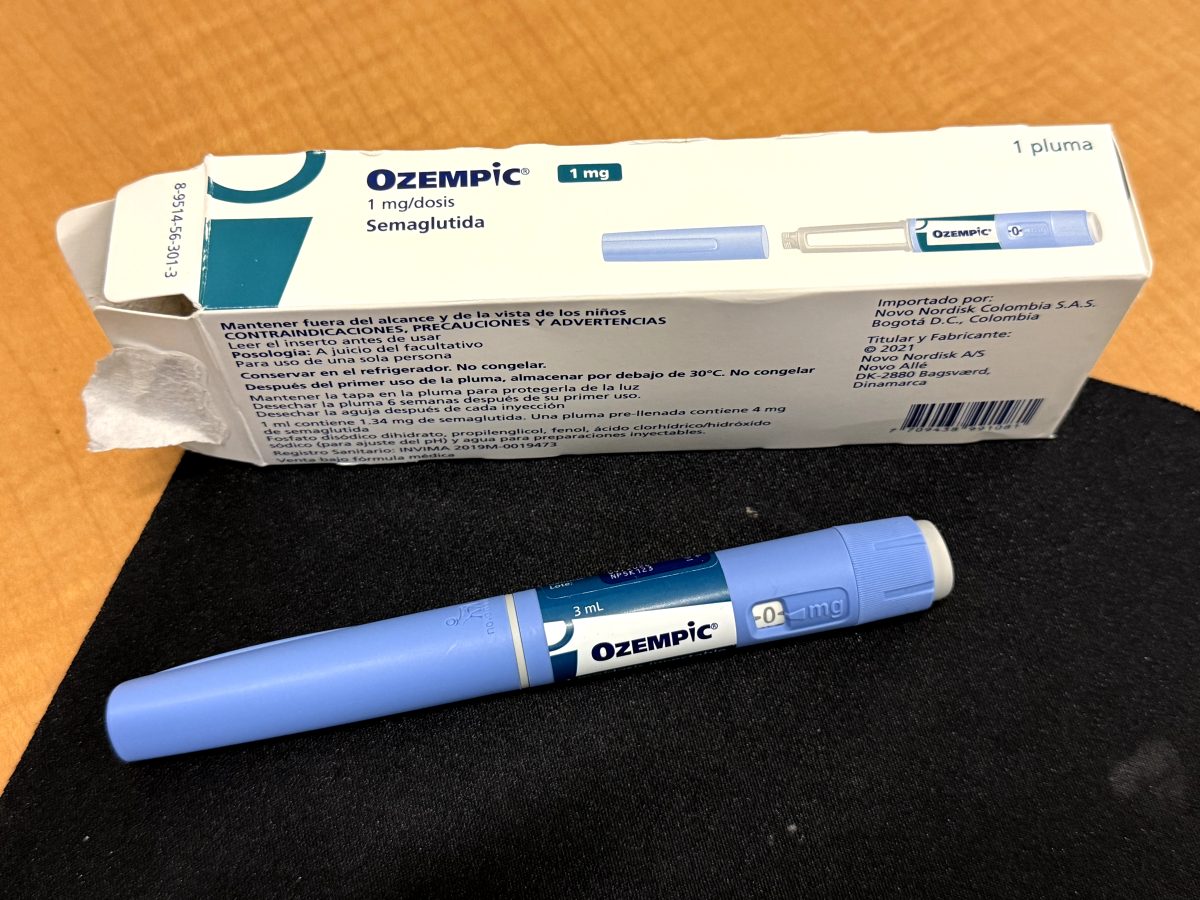Ozempic has been declared a “miracle” weight-loss drug by multiple news outlets and various celebrities and influencers. However, Ozempic was originally approved in December 2017 to help people with type two diabetes manage their blood sugar levels. The buzz around its weight-loss effects has shifted attention away from its intended use, fueling a trend unforeseen by the medical community.
The injection works by mimicking the naturally occurring hormone called glucagon-like peptide-1 (GLP-1) and inducing satiety: the sensation of fullness. It also slows digestion by prolonging the time it takes for food to leave the body.
Little is known about the long-term effects of Ozempic’s off-label use. What seems like an advantageous aid in weight loss may be understood as exceedingly dangerous in the future. Recommendations made by notable people like Tracy Morgan, a beloved American actor and stand-up comedian who has struggled with his weight for years and said he “ain’t letting go” of Ozempic, have raised concerns about what is still unknown.
This apprehension can be found here on campus. Shoreline Community College’s Professor Ayesha Patnaik said, “I don’t think enough research has been done. We don’t know if it will eventually have an impact on our health or not.”
Professionals in healthcare have warned against taking Ozempic without a thorough consultation. There is a lack of medical consensus on the drug’s pros versus cons compared to other medications; established potential side effects include nausea, vomiting, and more serious risks like pancreatitis or thyroid cancer.
“It’s being misused all around,” expressed Sofia-Marie Castillo, a Shoreline student. “My grandpa, who has diabetes, is so skinny. When he’s on Ozempic, he can’t keep food down. It’s not being used right for people with diabetes, and it’s not being used right for people who just want to lose weight.”
Diabetic patients with medical need are facing shortages as more and more non-diabetics request prescriptions. Most health insurance providers cover Ozempic when it’s used to treat type 2 diabetes, but the off-label demand is driving prices up for insurers and uncovered patients.
Ultimately, the rage for Ozempic alerts another surge in the glorification of rapid weight loss and ever-changing conventions of beauty. Jazmira Mafima, another Shoreline student, deemed Ozempic a “tool for society’s control over women—also men, but especially young girls. First was the BBL [Brazilian Butt Lift] … there will be something new right after this.”
Shoreline student Mammie Jagne said, “If I was sick and I needed it, I would take it. I wouldn’t take it for my physical appearance … [that practice] puts a misleading conception into the world.”
The off-label use of Ozempic could just be another passing fad in the never-ending endeavor for the perfect body, or it could become a longer-lasting trend. Either way, it’s important to think critically about what we’re putting into our bodies, especially when driven by societal pressures to look a certain way.





















